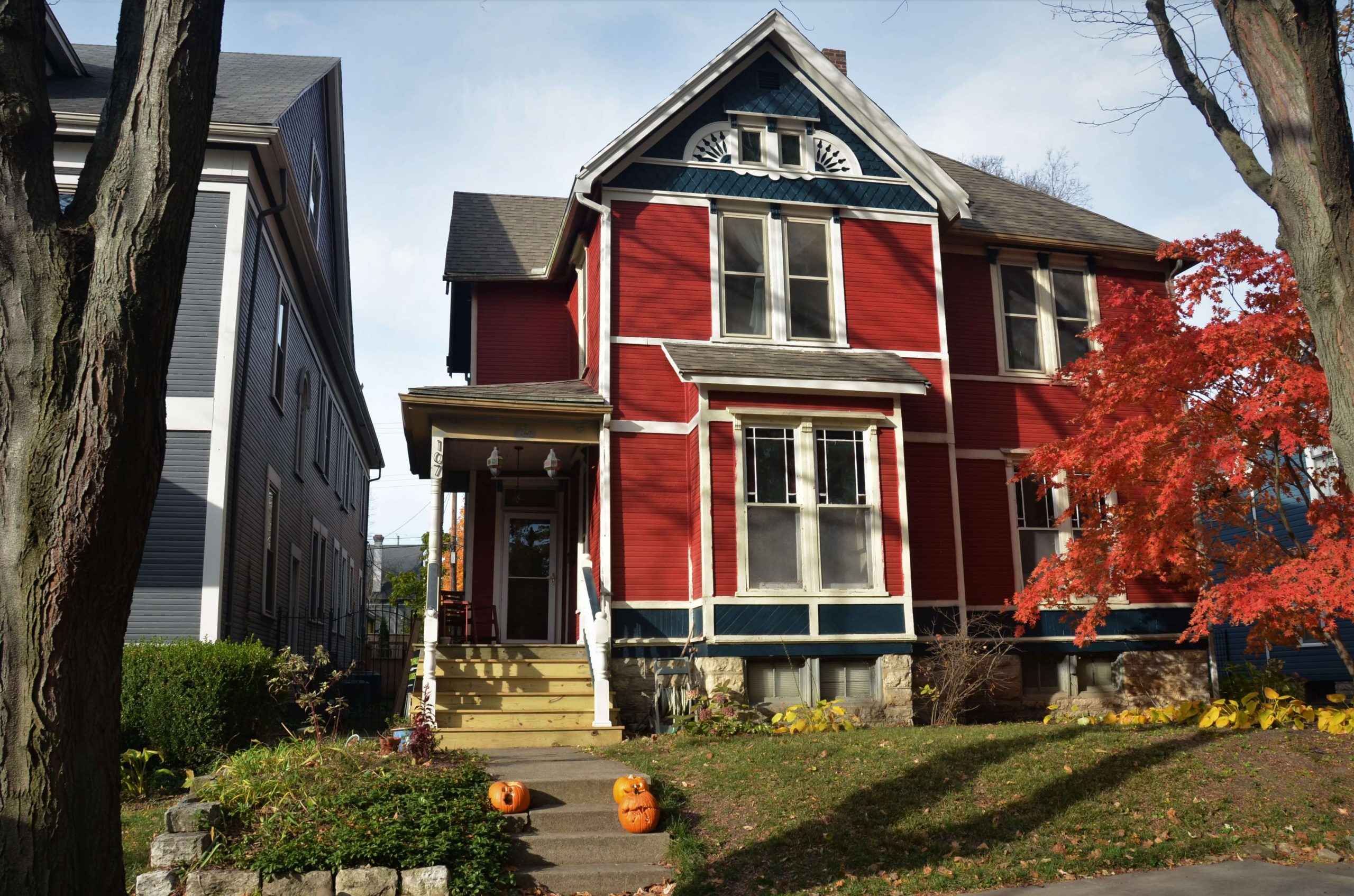What Is a Mortgage?
A Mortgage is a loan issued by a lender to a borrower to purchase a real estate asset. The asset in question may be land or a house since land plots are also considered assets too. Most Mortgage tenures run for 25 years, but there are instances where the tenure may run for much longer depending on the agreement between the lender and the individual applying for the mortgage. Mortgages are secured loans that are tied to the value of the asset for which the loan was issued in the first place.
Until the principal and interest are paid in full, the lender holds on to the property legally. After the loan has been paid off, the borrower assumes full ownership of the asset. However, in a case where there is a payment default, the lender has a power of attorney to sell off the property to a different person to recoup their investment.
What Do Years of Amortization Mean?
When applying for a mortgage, there are so many terms you will come across. One of them is amortization which is time-based. Amortization is the total period it will take you to pay up the mortgage issued to you by a lender. The concept of amortization is simply an estimated sum depending on the interest rate on the loan. When you amortize a mortgage debt, what it means in layman’s terms is that you are reducing the balance of the debt by paying off the principal and the interest on the loan according to pre-agreed schedules.
Now, in terms of amortization, interest rates are of two types.
Fixed Rates
A fixed rate mortgage entails reducing the principal and interest at a fixed rate for as long as the loan period lasts.
Adjustable Rates
An adjustable rate has a fluctuating rate of interest, unlike a fixed rate that is static. The rates under an adjustable scheme rise and fall during the lifecycle of the loan.
Types of Mortgage
Mortgages are classified based on their lifecycle. When you are applying for a mortgage to buy a home, the lender will ask you to pick the mortgage type you want. The tenure of the mortgage is an important thing to consider before deciding because it will determine just how much you will be charged as interest on the loan. Here are the three types of mortgages.
Short Term Mortgage
Most mortgage lenders in Canada issue short-term mortgages to qualified applicants that run for a tenure of 5 years or more but not more than 12 years. Short-term mortgage contracts have a shorter lifecycle, and they have the following features.
- A variable or fixed interest rate
- Attract the best interest rates
- They have a much higher monthly installment payment.
Longer-Term Mortgage
The second type of mortgage is a longer-term mortgage with a tenure starting from 5 years and above. The average long-term mortgage contract in Canada runs for a maximum tenure of 25 years. If needed, a special arrangement can be reached between the parties involved. Longer term mortgages attract a lower monthly repayment due to the longer timeframe. This type of mortgage has the following features.
- It is mostly issued at a fixed interest rate.
- Monthly installment payments are much lower.
- The interest rate hardly changes throughout the course of the tenure.
- It attracts a significant penalty if the borrower resells the property within the first 5 years of the contract.
Convertible Term Mortgage
This type of mortgage is quite flexible. A holder of this type of mortgage can change his or her shorter-term mortgage to a longer term mortgage. Convertible mortgages are not as common as the first two, and they are only issued to qualified borrowers. Once the mortgagor change from a short-term to a long-term contract, the interest rate will change as well.
Fixed vs. Variable Mortgage
Most prospective homeowners looking to apply for a mortgage tend to keep a close eye on the interest rate tied to the loan, and you should do the same. Mortgages are issued based on two types of interest rates. A fixed rate and a variable rate. Before we establish the relationship between the two, let us give a brief overview of the two.
Fixed Rate Mortgage
A fixed rate mortgage has a static interest rate that does not change throughout the mortgage tenure. The rate for a fixed mortgage is not determined by private mortgage lenders but by the Canadian government’s bond yields. The rate does not change even if the bond yields do. If you go for this type of rate, you should expect to pay the same fixed amount throughout the mortgage tenure.
| Pros | Cons |
|
|
Variable Rate Mortgage
A variable rate mortgage is the exact opposite of a fixed rate mortgage. This rate is determined by the prime rates of the Bank of Canada. Prime rates are interest rates paid to banks by borrowers for loans issued to them.
| Pros | Cons |
|
|
In the table below, we establish the relationship and differences between fixed rates and variable rates.
| Fixed Rate | Variable Rate | |
| Feature | The interest rate is fixed all through the tenure of the mortgage | The interest rate changes based on the prevailing prime rate in the market |

What Is a Reverse Mortgage?
Another concept worthy of note is a reverse mortgage. This term refers to a scheme that allows you to borrow money from your home equity without the need to sell your house. It is also called an equity release. In most cases, your lender may allow you to borrow up to 55% of cash based on your home’s value. The amount of money you can borrow from your home’s equity will depend on the following.
- The appraised value of the house
- Your age
- The agreement with the lender
How Much Can I Get As a Mortgage?
The amount of mortgage you can get will depend on several factors. Some of these factors include
- Your current age
- Monthly income
- Value of the property
- and lots more…
Many finance managers advocate for safe borrowing when searching for a mortgage. If you want to apply for a mortgage, it is advisable that you only do so if the monthly payment on the mortgage will not be more than 40% of your monthly income. Furthermore, the debt should not be more than 40% of the gross income of your household. Shopping for a mortgage is a great idea to get the best one for your personal situation.
Best Mortgage Rates
When searching for a mortgage for real estate, there are certain things to bear in mind. Taking note of the following points will help you get the best mortgage rates that you can afford. The interest rate is the most important factor to look out for when applying for a mortgage. Here are helpful tips on how to choose a mortgage.
- Be sure of your credit scores before applying for the mortgage. Clean up your credit score if it is poor and rectify any mistakes in your credit report.
- Decide on the interest rate you will go for before you apply for the mortgage. Pick the rate that you can afford.
- Contacting a lending institution is helpful to ensure that the process is seamless and straightforward.
How Much Can You Afford for your Home?
How much you can afford for your home will depend on your monthly income, the house’s value, and the interest rate tied to the mortgage. All these costs will reflect how much the lender will ask you to pay as a down payment.
What Is a Down Payment?
A down payment is the minimum amount of money the lender expects you to put down to purchase the house. This down payment must come from you and not be borrowed from elsewhere. Consider it as a commitment you need to make to show your seriousness and to share part of the financial risk of purchasing the house. The amount of down payment that will be demanded of you will depend on the following factors.
- Credit score
- Nature of your employment
- Purchase price of the house
Note: Down payments are mostly 20% of the purchase price, but if what you are offering is below 20%, the lender may ask you to procure mortgage loan insurance.
Monthly Payments
Monthly payments refer to how much you are expected to pay as installments throughout the mortgage tenure. The monthly payment covers the principal and the interest.
How to Find Low Mortgage Interest Rates
To find low mortgage interest rates, consider doing one or more of the following.
- Approach a financial institution that you already have a relationship with to make inquiries.
- Compare rates issued by different mortgage lenders by visiting their corporate website.
- Search the websites of financial advisors or contact them directly.
- Hire a reliable mortgage broker to help you compare the best rates.
How to Calculate Mortgage Payment?
Unlike in the past, when you had to contact a lender or a financial advisor to calculate mortgage payments, the process is much easier now with the rise of technology. To calculate your mortgage payment accurately, consider using an online calculator. An online mortgage calculator will aid you as you compare options so as to identify the best mortgage rates.
Get pre-approved on your mortgage
Before you approach a lender for a mortgage to purchase a new home, it pays to get a pre-approval from the lender first. A pre-approval is like a fact-finding mission to ascertain whether you qualify for the mortgage or not. Discussing with a lending institution first will benefit you by:
- Saving time
- Avoiding application rejections
- Knowing the cost implication of the mortgage long before you even apply for it
- Knowing how much you qualify for
- Knowing all about your contractual obligation and hidden costs, if any
How to Get Pre-Approval for a Mortgage?
To get a pre-approval for a mortgage, approach your financial institution for more information. Or better still, contact a competent broker to help you get a pre-approval from a reputable mortgage institution ahead of time.
FAQ – Frequently Asked Questions About Mortgages in Canada
Why use a mortgage broker instead of a bank mortgage advisor?
When comes the time to get a mortgage, most people are unaware of their options regarding mortgage lenders. A lot of people think a mortgage broker and a bank mortgage advisor is the exact same thing. In fact, hiring a mortgage broker will allow you to find the most suitable mortgage lender out there. Mortgage brokers have access to numerous lenders from various industries including private lenders, big banks and other financial institutions. When hiring a mortgage broker, you will have a personalized experience fitted just for you.
Bank mortgage advisors, on the other hand, only have access to their internal rates and cannot compare outside of their bank. There are also much stricter approval conditions when hiring a bank mortgage advisor. However, banks are familiar to us and therefore usually reliable which is why we can trust them more easily.
What is mortgage loan insurance?
Contrary to popular belief, mortgage loan insurance does not protect you in case you can’t make your mortgage payments, it actually protects the mortgage lender. In Canada, mortgage loan insurance is usually mandatory if your down payment is less than 20% of the purchase price. In some cases, your mortgage lender may still obligate you to take mortgage loan insurance even though you put 20% down because your credit history is low or you’re self-employed.
How much is mortgage loan insurance?
Mortgage loan insurance usually costs between 0,6% and 4.50% of your mortgage. The higher your down payment, the lower your mortgage loan insurance fee will be.
How does refinancing a mortgage work?
Refinancing a mortgage involves borrowing money against the equity of your home. To find out your home equity, you must deduct the amount you owe on your mortgage from the value of your home. Refinancing a mortgage, however, comes with fees. These fees include interest, legal fees, title insurance fees, title search fees and appraisal fees.
You should consider refinancing your mortgage if:
- You need emergency money and have exhausted all other options.
- You will be staying in the home for a few more years.
- You need to pay off a huge amount of debt.
- You need immediate money for investing.
- You want to reduce your monthly payments.
How do I pay off my mortgage faster?
Paying off your mortgage faster is a great way to save huge sums of money on interest rates in the long run. Be careful to not exceed the maximum amount permitted by your mortgage contract or you may have to pay prepayment penalties.
To pay off your mortgage faster you can:
- Make lump-sum payments during certain moments of your term.
- Increase your recurring payments.
Can you get a mortgage for a land?
Yes, in Canada, you can get a mortgage for a land. Mortgages for lands do require large down payments that can reach as high as 50% for lands that are used for long-term investments. By contrast, a land you are planning to build on in the near future usually requires a much lower down payment between 20% to 30%.
Conclusion
To get your mortgage application approved, there are certain steps you need to take to increase your chances of getting the loan for your future home. Knowing more about the mortgage application and qualification process is also important. We understand that the real estate market can be harsh; therefore, we advise that you do your research before approaching a lender for a loan. Doing this will help you get a mortgage with the best interest rates that you will be able to afford.




